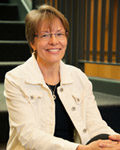Center, Public Policy, University of Nebraska

Lisa PytlikZillig Publications
Document Type
Article
Date of this Version
4-2020
Citation
PytlikZillig, L. M., Walther, J., Detweiler, C., Sebastian, E. & Houston, A. (2019). Public Opinions of Unmanned Aerial Technologies in 2014-2019: A Technical and Descriptive Report. University of Nebraska Public Policy Center, Lincoln, NE.
Abstract
The primary purpose of this report is to provide a descriptive and technical summary of the results from similar surveys administered in fall 2014 (n = 576), 2015 (n = 301), 2016 (ns = 1946 and 2089), and 2018 (n = 1050) and summer 2019 (n = 1300). In order to explore a variety of factors that may impact public perceptions of unmanned aerial technologies (UATs), we conducted survey experiments over time. These experiments randomly varied the terminology (drone, aerial robot, unmanned aerial vehicle (UAV), unmanned aerial system (UAS)) used to describe the technology, the purposes of the technology (for economic, environmental, or security goals), the actors (public or private) using the technology, the technology’s autonomy (fully autonomous, partially autonomous, no autonomy), and the framing (promotion or prevention) used to describe the technology’s purpose. Initially, samples were recruited through Amazon’s Mechanical Turk, required to be Americans, and paid a small amount for participation. In 2016 we also examined a nationally representative samples recruited from Qualtrics panels. After 2016 we only used nationally representative samples from Qualtrics. Major findings are reported along with details regarding the research methods and analyses.
Included in
Administrative Law Commons, Civic and Community Engagement Commons, Cognitive Psychology Commons, Counseling Commons, Dispute Resolution and Arbitration Commons, Family Law Commons, Industrial and Organizational Psychology Commons, Juvenile Law Commons, Law and Psychology Commons, Law and Society Commons, Other Psychology Commons, Public Affairs, Public Policy and Public Administration Commons, Public Law and Legal Theory Commons, Science and Technology Studies Commons


Comments
Report is also available from the University of Nebraska Public Policy Center website (ppc.unl.edu).